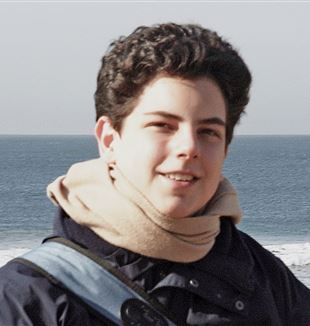
Roadmap to Reality
A developmental neuroscientist participates in a documentary on Carlo Acutis and the digital revolutionI recently had the great gift of contributing to a documentary on the life of soon-to-be Saint Carlo Acutis called Roadmap to Reality.
My participation came about unexpectedly. Earlier this year, I published an article in Church Life Journal reflecting on the nature and impact of the digital revolution from my perspective as a developmental neuroscientist. Digital technologies, I argued, are finely tuned to exploit the architecture of our attention: fragmenting it, diverting it toward lesser goods, and doing so for the financial profit of tech developers. This isn’t a novel claim, but it is a necessary one to repeat, because we are made for more—for embodied, integrated, communal engagement with the real. So the fragmentation of our attention threatens to obscure the path to the end of human life, which is communion with the One who is Truth.
Yet we are not without hope. I concluded the article by considering how these same tools can be reordered to serve our growth in the Christian life. When used according to the criterion of living the memory of Christ, even digital media can become a means by which we grow in attention, in communion, and in love. We are no longer “tools of our tools,” to use Thoreau’s phrase, but free men and women, free because we are in relationship with Christ who is our fulfillment.
Shortly after the piece was published, the director of a new documentary on Blessed Carlo Acutis, the teenage soon-to-be saint who famously enjoyed video games, reached out to me. He had read the article and wanted to interview me about some intersections between Carlo’s story and the current challenges facing the Church—especially around mental health, science, and technology. I was grateful to be able to share insights not just from my studies and research, but from my own experience: above all, my discovery that, even amid the noise of the digital age, God continues to take an initiative of mercy in our lives through the Church.
I had a chance to see the documentary in theaters and found it profoundly moving, especially because the film told the stories of young people discovering Carlo’s life and going away changed. As the growing devotion to Carlo’s cause demonstrates, the Holy Spirit is using his face to awaken in us—especially in the young—a desire for Christ as the one thing necessary. The documentary project itself was a clear example of how digital tools, when turned toward truth and beauty, can become instruments of grace.
Like all the saints, Carlo’s life asks each of us to make a judgment about what—or rather, Whom—we hold most dear, and to hold fast to Him, even to the point of sacrifice, so that Christ might be made known and loved.
For those of us living and working in a secular environment, one of the most striking things about Carlo’s witness is its ordinariness. His life loudly proclaims a truth that Giussani never tired of teaching us: that we have already been given everything we need to be in relationship with Christ in the limitations of time and space. The circumstances of our lives are not obstacles to union with Him; they are the very path by which His life bursts into our own and claims it for Himself.
Personally, the aspect of Carlo’s witness that most educates me is the way he lived his death. During his decline, he entrusted himself completely to the Father. In this abandonment, we see that the meaning of life is not in what we produce or consume or control, but in what we offer. Carlo was truly free because, united to Christ, he gave his life back to the Father in gladness. We must beg to learn this. We must practice it daily. At any moment, the Lord could call us home, and until that hour, every moment has dignity, beauty, and meaning only when and insofar as it is lived for Him. Offered in this way, even our use of technology must become a participation in His life and an entreaty for the coming of His kingdom.
Sofia, Boston, MA